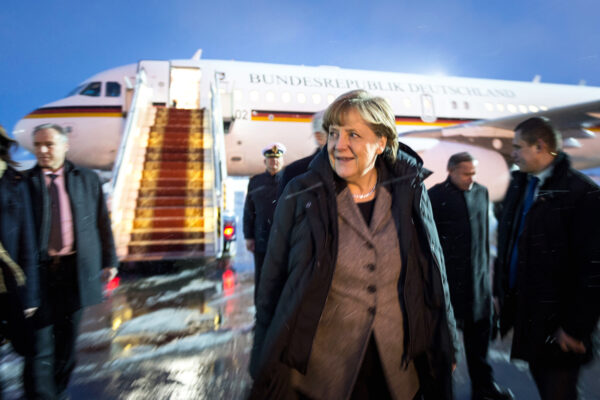
German media report that the country’s Christian Democrats and Social Democrats are making progress in talks to form another coalition government.
- There is reportedly a deal to attract more high-skilled migrants.
- The parties are willing to spend €12 billion to expand fast Internet access across Germany by 2025.
- They are also looking at tax incentives to promote digital research and investment.
The plans bely fears that another “grand coalition” would muddle through for four more years and not make necessary reforms.
Immigration
Immigration policy has been entirely reactive since Angela Merkel, the Christian Democratic leader, opened Germany’s doors to more than one million refugees from the war in Syria in 2015.
A right-wing backlash forced her to freeze family reunifications and temporarily reinstate border controls. Both are likely to be extended in the next government.
Merkel has also agreed to a “soft” immigration cap of 200,000 per year, although this does not sit well with the Social Democrats.
The sort of immigration reform Germany needs to cope with an aging population and imminent labor shortages — the country is projected to lose ten million workers between now and 2060 — has been put off.
The Christian Democrats have proposed giving out permits on the basis of job offers, but that may not make much of a difference. Employers are reluctant to hire foreign workers if it involves too much paperwork.
The Social Democrats have a better idea: a Canadian-style points-based system that rewards language and technical skills. That could attract talent and deter low-skilled immigration at the same time.
Digital economy
The Christian Democrats, keen on balancing the federal budget, have for years underinvested in (digital) infrastructure.
Germany has the world’s fifth largest IT industry, but it lags behind transportation and logistics in terms of value added to the economy.
Fiber-optic coverage is lower than anywhere else in Europe. The neighboring Baltic states and the Netherlands do better in e-government.
Despite a burgeoning startup scene in Berlin, and innovations in the automobile and pharmaceutical industries of Bavaria, many small and medium-sized businesses — traditionally the backbone of the German economy — feel they are not fully capitalizing on the promise of the digital economy.
